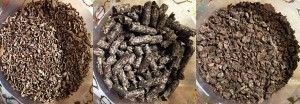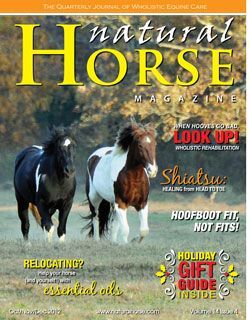 Beet Pulp Warning!!
Beet Pulp Warning!!
Here is some important information on an old mainstay…beet pulp!
“Doing some interesting research on sugar beets right now. The bottom line is do not feed beet pulp to your horses. Three good reasons. The first is Glyphosate from Round Up Ready Sugar Beets that drastically reduces the uptake of minerals and which kills bacteria in the hindgut. The second is that sugar beets are sponges for arsenic which is a problem in the Taber area where the refinery is. The third is Disodium Cyanodithioimidocarbonate (DCDIC), the chemical that is used to strip the sugar from the beets, which is a toxin and banned from use as a pesticide…but we feed it to our horses in beet pulp.” – See more at:
http://www.bioequine.com/beet-pulp-warning.html
EDITED TO ADD THE FOLLOWING from Dr. Susan Garlinghouse —
BEET PULP or NOT to BEET PULP:
Dr. Susan Garlinghouse, an equine vet who has specialized in nutrition. Dr. Garlinghouse’s response was as follows:
1. The fiber in beet pulp is not even close to “indigestible”—the only fiber found in forage that *is* totally indigestible is lignin, which is almost non-existent in beet pulp, but considerably higher (it varies) in the hay pellets whats-her-name recommends. And even being indigestible doesn’t necessarily make it bad, just
2. affects GI transit time, etc differently than fermentable fibers. The fiber in beet pulp is primarily pectin, a soluble fiber, which is highly fermentable and digestible. Apparently, no understanding by the author of how digestive physiology works here.
3. The whole water weight argument is just total nonsense. Having a good reservoir of water in the hindgut is generally considered a good thing in performance horses and if all that water were just “rushing” through, the horse would have projectile diarrhea. Not loose stools. Projectile. One of the primary benefits of feeding beet pulp to performance horses is that there *is* more of a water reservoir in the hindgut. Doesn’t adversely affect absorption of anything else. I could go into a long dissertation of soluble fibers fermenting to primarily butyric acid, which in turn is the preferred substrate of enterocytes, thus optimizing a higher turnover (that’s a good thing), which then in turn optimizes absorption, water and electrolyte balance in the hindgut, but that’s way too long for this reply. And none of it is classified material. Find a qualified nutrition text and use that as an information source, not this twaddle.
4. “Does your horse have loose stools” – Most people that feed alfalfa think that the ideal consistency to horse poop is a tight, dry little road apple.You don’t want diarrhea, but same as for other species, a softer consistency is not necessarily a symptom of disease. It’s usually a lot better than overly dry. Horses on pasture and on grass hays (and also beet pulp) often have a bit of a splat to their poop, which is highly fine-by-me.
5. Sugar beets don’t “store” pesticides in the pulp. If they did, it wouldn’t be very effective in eliminating bugs on the outside of the plant,would it? I’ve seen the tox assay reports on beet pulp and the results were pretty much nil. I also ran my own on beets straight from the field and hosed off in my driveway–also nil. Also, shredded beet pulp gets tossed into a water bath and the water with soluble sugars (which is the cash crop here) is removed and dried to the table sugar end product. If there were residues, it’s more likely they’d be present in higher concentrations in the table sugar. It’s not. When whats-her-name can produce real data, we’ll talk. Until then, it’s apparent she’s not even familiar with the manufacturing process, let alone any inherent shortfalls.
6. All that gibberish about “does your horse have brittle feet, weak in the hindquarters, yada yada” makes no logical point or argument. She makes claims of horses that had health problems that were being fed beet pulp, she totally changed their diets, their condition allegedly improved and therefore it was the beet pulp that caused the initial problem, not anything else having to do with its ration or management. Pretty shaky logic. It’s a lot like saying that there are pigeons in cities, and crime in cities, therefore pigeons cause urban crime. Sorry, there’s just no logical thought process here, no science or scientific background, no qualified views. But, everyone is entitled to an opinion, even if those opinions aren’t worth the paper they’re printed on. Susan Garlinghouse, DVM (no certifications, just university degrees)
For the record, Dr. Garlinghouse has long been a proponent of feeding beet pulp to horses and is quoted on many of the endurance sites on its benefits. Her assessment of the nutritional value of beet pulp can be found in this article on her website, The Myths and Realities of Beet Pulp.
I did an Internet search on residual pesticides in beet pulp and found a 1971 study conducted by the World Health Organization. The finding for sugar beets was:
Shuttleworth et al. (1971) studied the effects of sugar beet processing to determine if endosulfan or endosulfan sulfate residues in sugar beet roots would concentrate in the processed beet pulp. Mature sugar beet root samples from a plot treated with three aerial applications of Thiodan 2 EC at 1.0 lb active/acre were analysed 0 and 35 days after the last application. No endosulfan or endosulfan sulfate residues were found at the limit of sensitivity of the method of 0.05 ppm. Sugar beet pulp, obtained from processing the above.











I’ve used it for many years. I do live in the UK and this is UK grown, but I have used it as a basic food for my horses and ponies for many years. And I must be doing something right as my oldest is 31, my still ridable cob is 28 and the Shetland companion is probably 30.
I think this is rubbish really.
I don’t believe that in the UK they allow GMO beets or beet pulp. That, now, here in the US is a problem with much of the food raised here. Speedi Beet is formulated in UK and that is why I recommend it.
What about LMF feeds? I feed this too my horses and it contains beet pulp….
I’d be far more concerned about feeding my horse manufactured feed that contains molasses, is high in NSC’s, or over-treating with carrots and apples, all of which is prevalent in most barns. The dangers of IR, PPID, laminitis and founder I think are far more critical to a horse’s overall health. Fact is, most horses today are obese and will develop any or all of those things by the time they are in their teens. I do not worry about the measuring cup of molasses-free beet pulp they get twice a day with their chopped forage, minerals, and ration balancer. One is 25 and has consumed beet pulp all his life, huge amounts when competing in Endurance. He is now one of the thousands of horses with PPID and I think it will get him long before the beet pulp does.
Aside from Beet Pulp, this might be of interest to you. http://www.thepenzancehorse.com/2008/BITSNPIECES/CUSHINGS/cushingsresearch.htm
article is pure nonsense! more media scare to benefit alternative suppliers……
Sounds like a commercial for Speedi Beet. This article is pure BS. Gwen really is taking a minority of processing and sensationalizing a result. She must love Al Gore.
Actually, its written by someone from a company offering a different supplement (of which I know nothing but did find the info interesting and worthy to note.) It is interesting to note the post script in the ‘article’ from Dr. Susan Cook —
Additional Beet Pulp Warning – Added February 2015
I received an email from animal therapist/nutritionist Ross Buchanan with another Beet Pulp warning. He said “Take a look at what Dr. Susan Cook from Phoenix says about Beet Pulp. It looks like we now have a fourth reason not to use beet pulp.”
“I also had my own unfortunate experience with a feed. In less than a month my horses were all having health problems. Two had gas colic, one ran a temperature of 106 (depressed immune system), and my laminitic mare lost weight. Testing of this feed at Equi-analytical Laboratories in Ithaca, N.Y showed it contained 600 ppm aluminum and over 500 ppm iron (500 ppm is toxic to horses). As beet pulp was the main ingredient I researched its iron and aluminum content. The Equi-analytical library showed beet pulp contains high iron. I also found that aluminum sulfate is used as a press agent to remove sugar from beets. Thus beet pulp is the source of elevated levels of iron and aluminum. Beet pulp is used as an ingredient in some senior and performance feeds because of its high digestibility. In my opinion, the high iron and aluminum content makes it a poor choice for horses. Other horse feeds contain soybean hulls to increase digestibility. Since soybeans are processed by acid washing in tanks that often are made of aluminum, soy products in horse feed may also contribute to the aluminum content. The other minerals were not present at the levels specified in the “Guaranteed Analysis”. Moreover, the ratios were all off.”
– Dr. Susan Cook
——————————————-
Personally, I’ve never fed Beet Pulp to any one of my own horses; even seniors. So am not advertising for anything here.
I DO advocate for organic whole feed (preferably raw forages) that have not been inundated with all sorts of chemicals and artificial flavorings, colors, preservatives, OR altered by genetic engineering. Speedi Beet, as far as I know, is the brand that is formulated from real, natural beets. And that’s the only one I know of that is available.
I might ask — if you are not liking what is posted then why read this site? If you can come up with a good argument contrary to what is being posted about GMO and RoundUp ready beets that are processed into Beet Pulp, and come up with good reasoning as to why anything that is GMO and chemicalized with glyphosates is safe and healthy for horses then I’d be most interested in a discussion with you. Otherwise, simply stating ridiculous comments, as you have, will simply find your posts hitting the ‘trash bin’. 😉
MORE: Just FYI: Regulating the GM Sugar Beet
In March of 2005, genetically modified sugar beets appeared on the US market for the first time. Crafted by Monsanto to include a gene from a soil bacterium, this GM beet was able to withstand a copious onslaught of Monsanto’s Roundup herbicide (glyphosate). The agricultural industry could spray as much of the weed-killer as it wanted without impacting crops.
Today, Monsanto’s GM sugar beets make up 95 percent of the US crop, having been planted year after year despite a US District Court injunction against planting and even a ruling by US District Court Judge Jeffrey White that the 2011 crop be destroyed due to illegal deregulation. The story of how Monsanto raised its product above the law is a case study of the power of the biotech industry over federal regulators.” http://www.greenamerica.org/
Corn and oats are horse feed. they put too much stuff in horsefeed these days it should be fed by Protein percentage, I used 12 and 14, We never used Beet Pulp on any horses, it was watered down and fed to cattle in shows because it bulks them out before they show, showing them better. I don’t think it should be fed to horses, unless a necessary thing a vet says will help, and I don’t know any that do!! I Grew up on a Dairy Farm, and we used our horses to do farm work, and 4-H shows. and trail ride, What are people doing to their horses these days? Supplements only what a horse needs, and vet suggest for digestion and joints, is used from Smart Pak. They are a Horse Care Company. I have used on hurt horses and underweight horses for years to keep from colic and etc. After abuse of not fed right, etc. Beware do not just go out and buy feed, with all this stuff in it, it is bad enough that they are showing how sick dogs get from grain and etc in their feed, too much ash will make cats sick, if in their cheap food fed them, and go diabetic and die even. So be careful what you do feed your animals.
Most corn and oats unless stated organic are also GMO. Corn is NOT a natural horse feed and in the wild horses would only seasonally get what would be the wild equivalent of oats…not year round. A diet high in oats and corn leads to sugar issues, laminator and founder.
I hate to tell you this, I have personally worked with several vets here in NC. We have very sandy soil in our area and ALL vets in this area and surrounding areas recommend feeding soaked beet pulp to horses. I raise all of mine on beet pulp added to their feed. Corn should NOT be fed to horses. It is a carbohydrate and that can cause excess energy leading to hyperactive behavior. Horses do not digest corn well at all. The technology for developing horse feed has changed greatly. Good quality feeds are fortified with all the minerals and vitamins they need, as well as Pre and Probiotics, Omega fats and much more. Out vets also advise adding water to their feed. The beet pulp has MANY positive reasons for being fed to horses. Clean beet pulp pellets, such as Standlee products, should be soaked for several hours and then added to the feed along with water. This not only adds roughage to their diet but it also helps to push sand through their system so it doesn’t build up in their intestines. It also helps to keep moisture in their gut and helps to prevent colic from not drinking enough water. We feed it year round. We have been dong this for over 12 years and have never had a sand colic, or any other colic. Our horses are all raised on Tribute Feed. Our horses are healthy, shiny, the mares all have very big and healthy foals that have tons of energy. Our current 10 week old is already the size of most 6-9 month old horses. We have only had one horse ever get sick and that was right after she had her wolf teeth removed. Her immune system was low and she caught a cold. Other than that, our horses are all super healthy. I won’t feed them without the benefits of Beet Pulp.
If your feed is properly fortified, you should not need to buy Supplements. If you are feeding the proper amounts of feed, as listed, adding supplements will cause the problems of toxicity you are trying to avoid. I have been to many feed seminars and nutrition classes. Research the Tribute Feed and you will be amazed at how detailed their information is and the awesome products they offer. Their formulas are fixed. Their labels are accurate and they offer a warranty on ALL of their feeds! How many companies do you know that do that?
We have horses from 10 weeks to 20 years old. I have had my stallion since he was 7 and he just turned 20 this month. Most people think he is not even 10 yet. He is still producing beautiful, healthy foals…wouldn’t change his diet for anything. 🙂
Darlene, Im guessing that your horses get a lot of graze time? If so, stick them in a stall and feed them all that beet pulp for a while and see how they end up looking. Also, ask your vets how much actually nutritional training they have had, and who trained them…not what school they went to, but who actually taught the classes. MOST of them have near to zero understanding of horse nutrition so saying you are working with a vet doesnt mean much until they prove otherwise. As beets are a root plant like a potato, they are also a carbohydrate…no different than corn. Beet pulp has NO nutritional value other than some protein and calcium. Beet pulp should be considered no better than a rice cracker…a filler that adds water. It also causes the body to retain water…take a horse off of it and within a few days it will deflate. So saying a horse is “plump” on beet pulp is correct.. its like plumping up a butter ball turkey. I have met a LOOOOT of people that feed beet pulp, and I have yet to meet one who’s horses I was impressed by.
I agree with the fact that beet pulp is not the best choice of horse feeds. I know all of it grown in our area is GMO and full of glyphosphate. Having said that, I think there are some good uses for beet pulp if you can get organic (as a filler for a horse that cannot eat hay and is getting too fat on regular feeds but needs something to satisfy the face) but not using it solely because it has glyphosphate in it is well, hypocritical. Roundup is used by most hay producers as well as grain producers. Unless it is labeled “organic” you are pretty much guaranteed of having in both animal and human products. It just plain needs to be outlawed like so many countries have done. Saying that, it just shows how important it is to have a regular detox program, which is why I made an herbal based product for detoxing on a regular basis. We are surrounded by toxins, and its important to keep them flushed out of both human and animal bodies.
Also, beet pulp is very very limited nutritionally and should not be fed in large quantities because of this. Its about as healthy as eating a rice cracker =/
I agree! With *organic* beet pulp. The only one I know of would be speedi beet and that is why I mentioned it by name. 🙂 I do detoxing, too … with herbs and raw foods. 🙂
Sadly Speedibeet is not available in our area. =/
Problem is Speedi beet is hard to get in areas of the US. You have to make choices on if you let your old or hard keepers go or keep them in it and as healthy as possible.
I only fed it to horses needing extra bulk, but not routine
You might find that whole, raw, organic ‘salads’ mixed with alfalfa pellets (again, be careful; its noted that alfalfa is now GMO as well) would help with maintaining condition and weight.
Well, given that US Beets are all GMO now AND heavy use of glysophate is used in commercial farming, I prefer to recommend organic beetpulp – I believe Speedi BeetPulp is the one that is free of all this stuff.
Horse owners NEED to do their own research and come to their own decisions regarding their own horses. They need to be educated. So if ‘warnings’ such as this causes a horseowner to dig in a bit deeper and do some of their own research and educating themselves, then its all good. 🙂 That’s just my opinion, tho, of course. 😉
Articles like this are unfounded across the board. All they are good for is starting a mass scare among horse owners that do not know any better.
I’ve been talking to people about this article and find NO evidence to back ANY if the statements made .
Hi Carolyn .. well, you might want to ask the author of the article. The link is at the bottom of it. 🙂 Thank you for reading, though!
My question is what scientific evidence do you have to support your statements concerning Beet Pulp. Are there independent laboratory test you have access to? I have had a lengthy discussion with two separate feed company nutritionists on your statements. I have also researched sugar extraction methods in Western Canada and find no evidence at all of the use of DCDIC so again my question is where do you get your information?
I was only interested to know if you had done testing on Beet Pulp produced in Western Canada not the Eastern United States. All beet pulp pellets from my supplier are produced in Western Canada from Sugar Beet grown in Western Canada. Sugar extraction process involves hot water only.
I know the beets here in the USA are all genetically modified and, as such, perhaps not the best choice to feed as long term results from GMO foods are not as yet determined. I try to stay away from GMO foods and do not recommend them. Beets from other countries are not modified at all. “Speedi Beet” is one such product that many use as it is not altered in anyway from what nature offers. 😉 But, again — I’ve, personally, not done any testing — you’ll have to contact the author of the article to see the response from her on that. 🙂
Does a horse have a hind gut or is it a term or a section of the gut . very confusing term
The stomach and the small intestine make up the ‘foregut’ while the cecum, the colon and the rectum make up the ‘hindgut’. 🙂